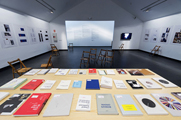Tour to the exhibition of the CA2M funds followed by a talk on the way of including contemporary art in the classroom.
Tour to the exhibition of the CA2M funds followed by a talk on the way of including contemporary art in the classroom.
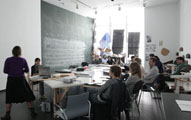
Tour to the exhibition of the CA2M funds followed by a talk on the way of including contemporary art in the classroom.
Tour to the exhibition of the CA2M funds followed by a talk on the way of including contemporary art in the classroom.

Itziar Okariz´s (Donostia- San Sebastián, 1965) actions launch diverse representation and communication means in an attempt to transgress through the application of her same conventions. A mimetic process that makes use of the descontextualization of signifiers, of the change of the logic order, of the role inversion between the one who observes and the one who is observed and of the repetition.
Itziar Okariz´s (Donostia- San Sebastián, 1965) actions launch diverse representation and communication means in an attempt to transgress through the application of her same conventions. A mimetic process that makes use of the descontextualization of signifiers, of the change of the logic order, of the role inversion between the one who observes and the one who is observed and of the repetition.
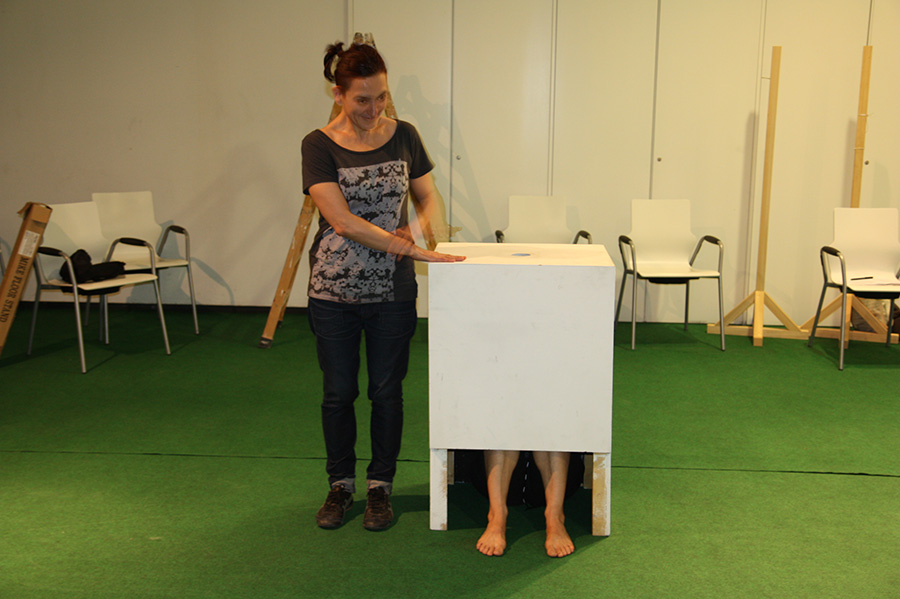
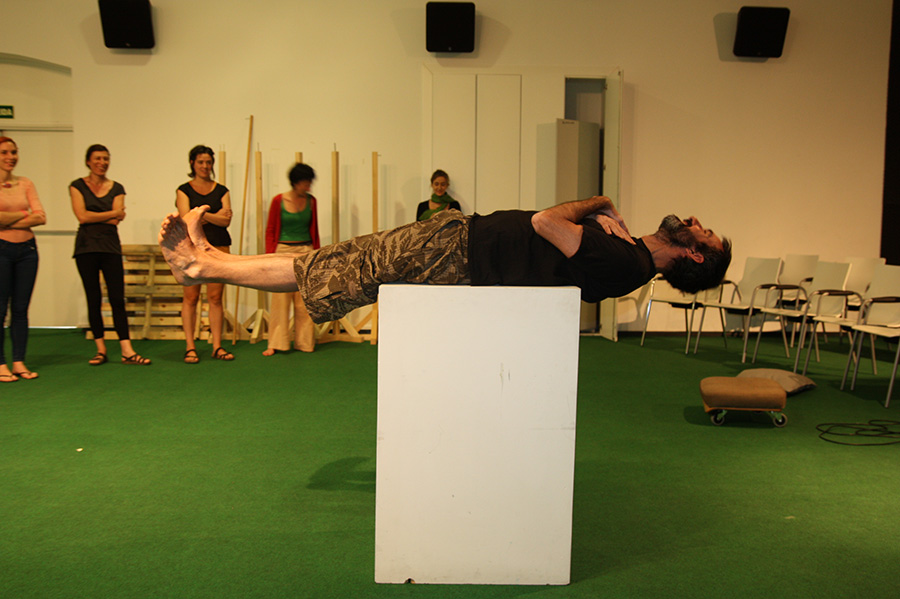
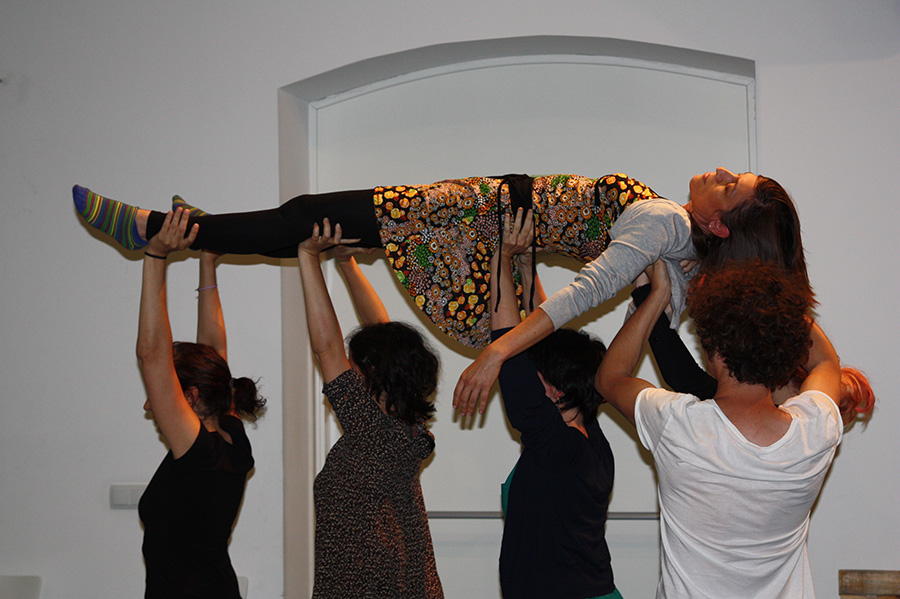
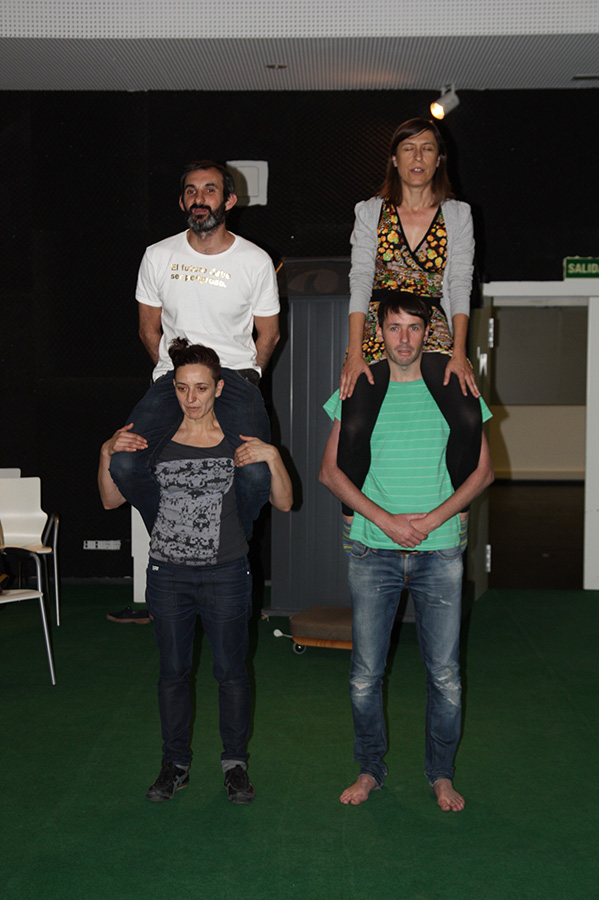
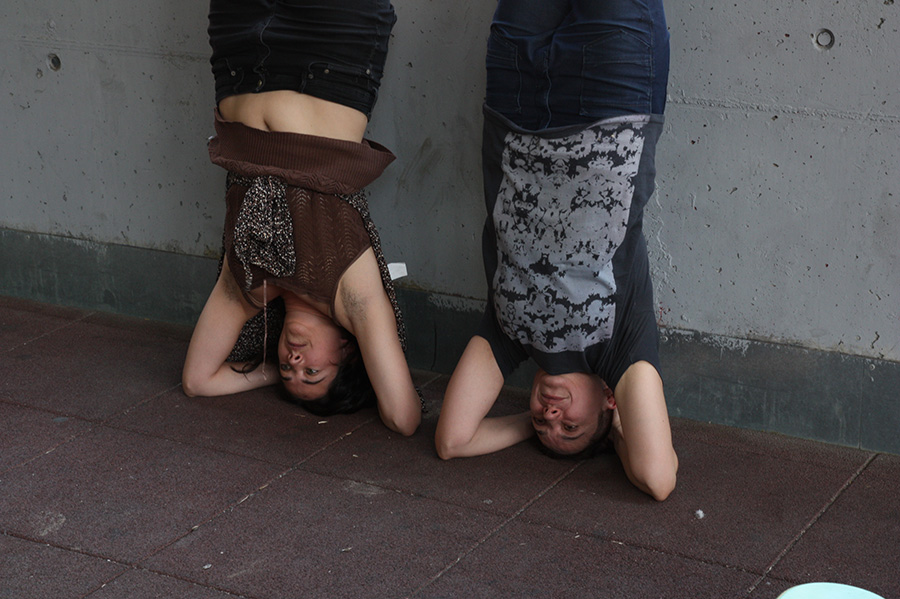
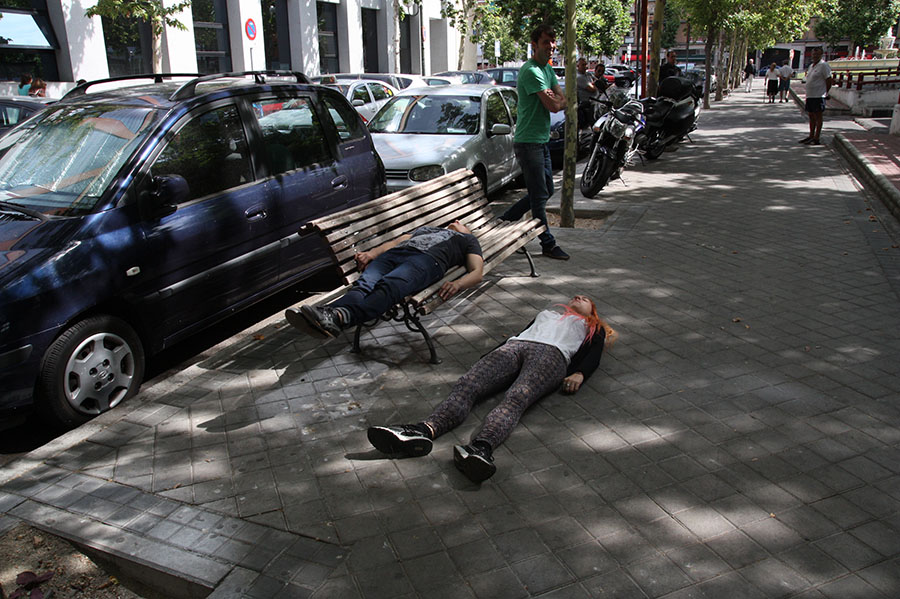
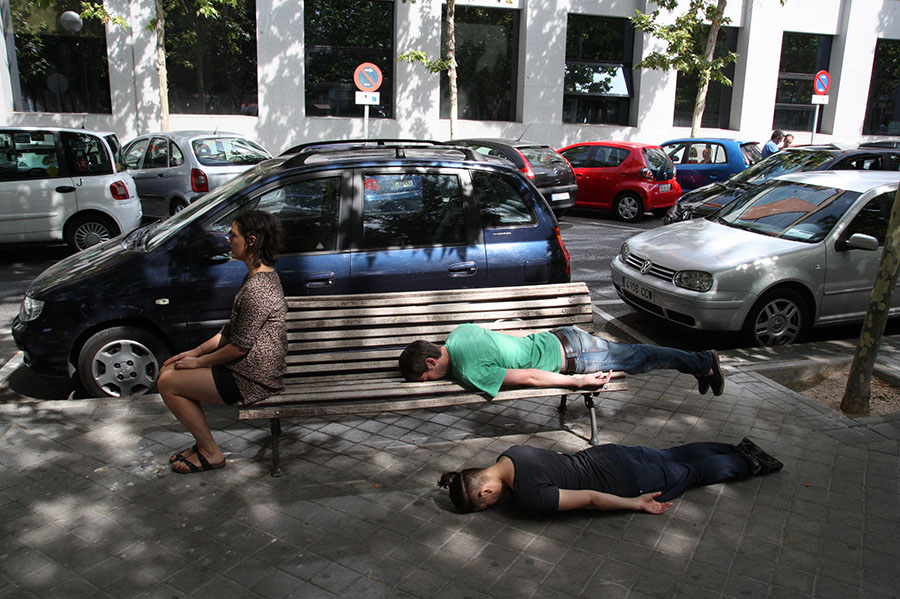
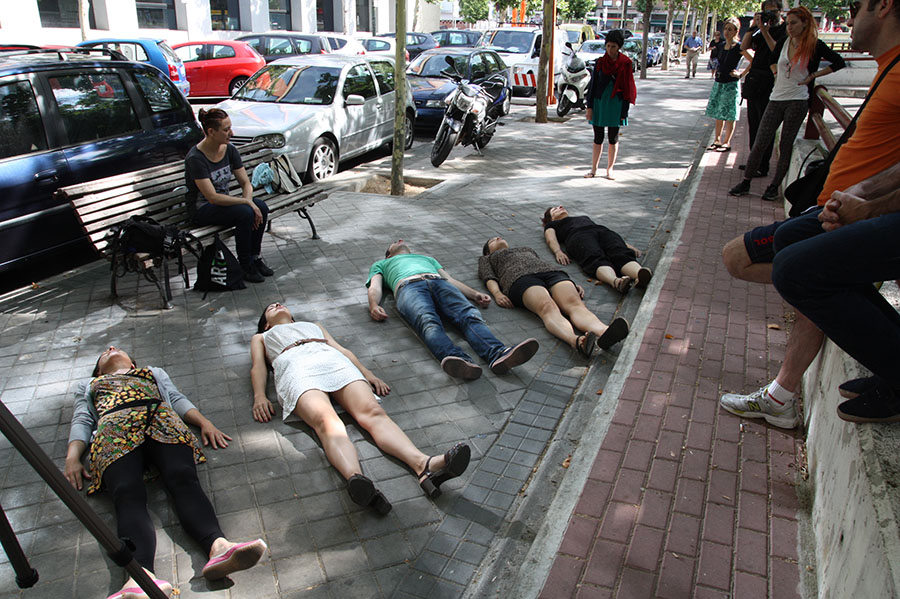
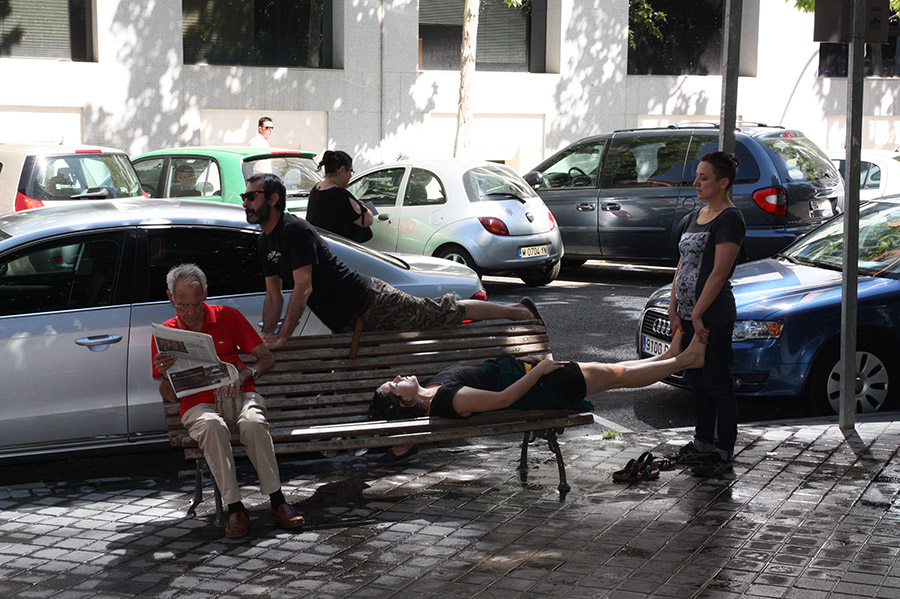
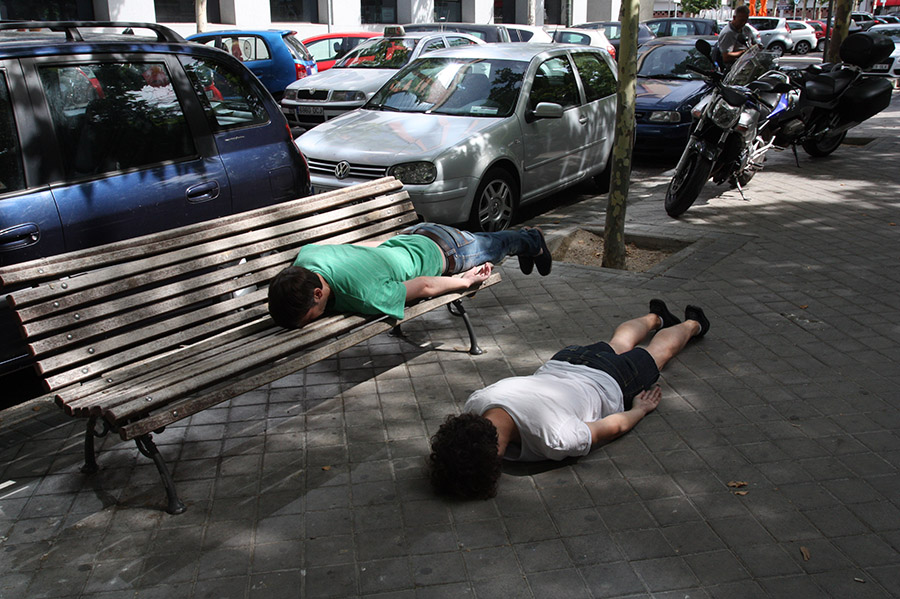
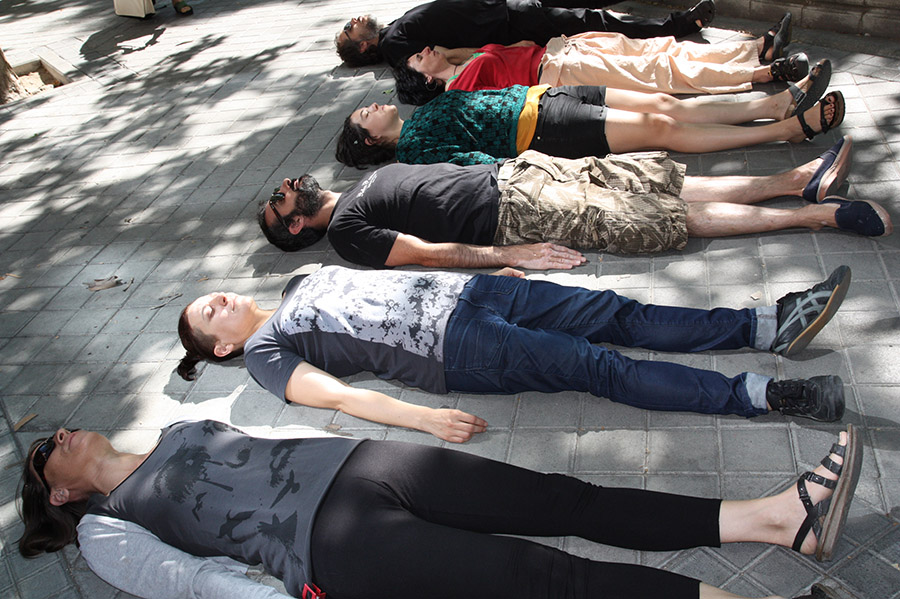
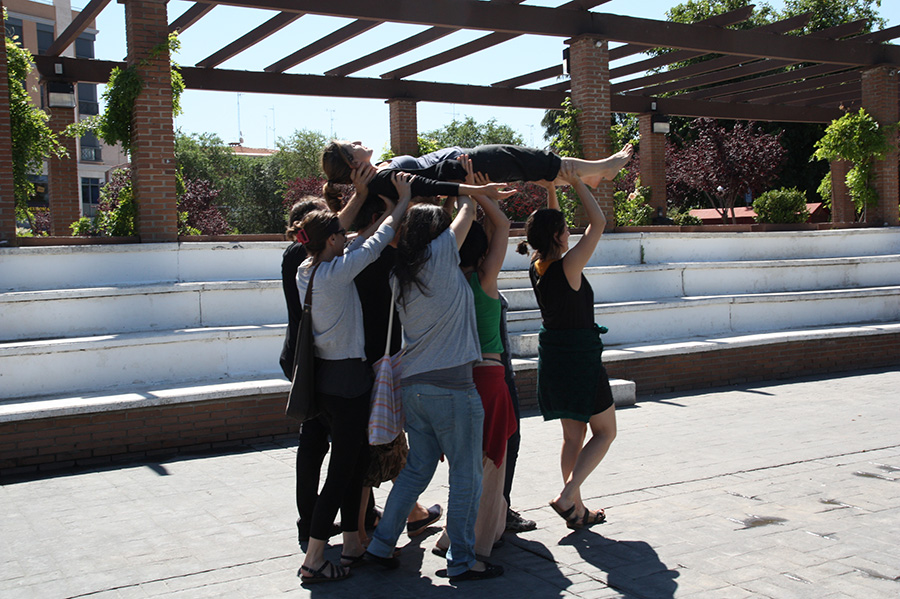
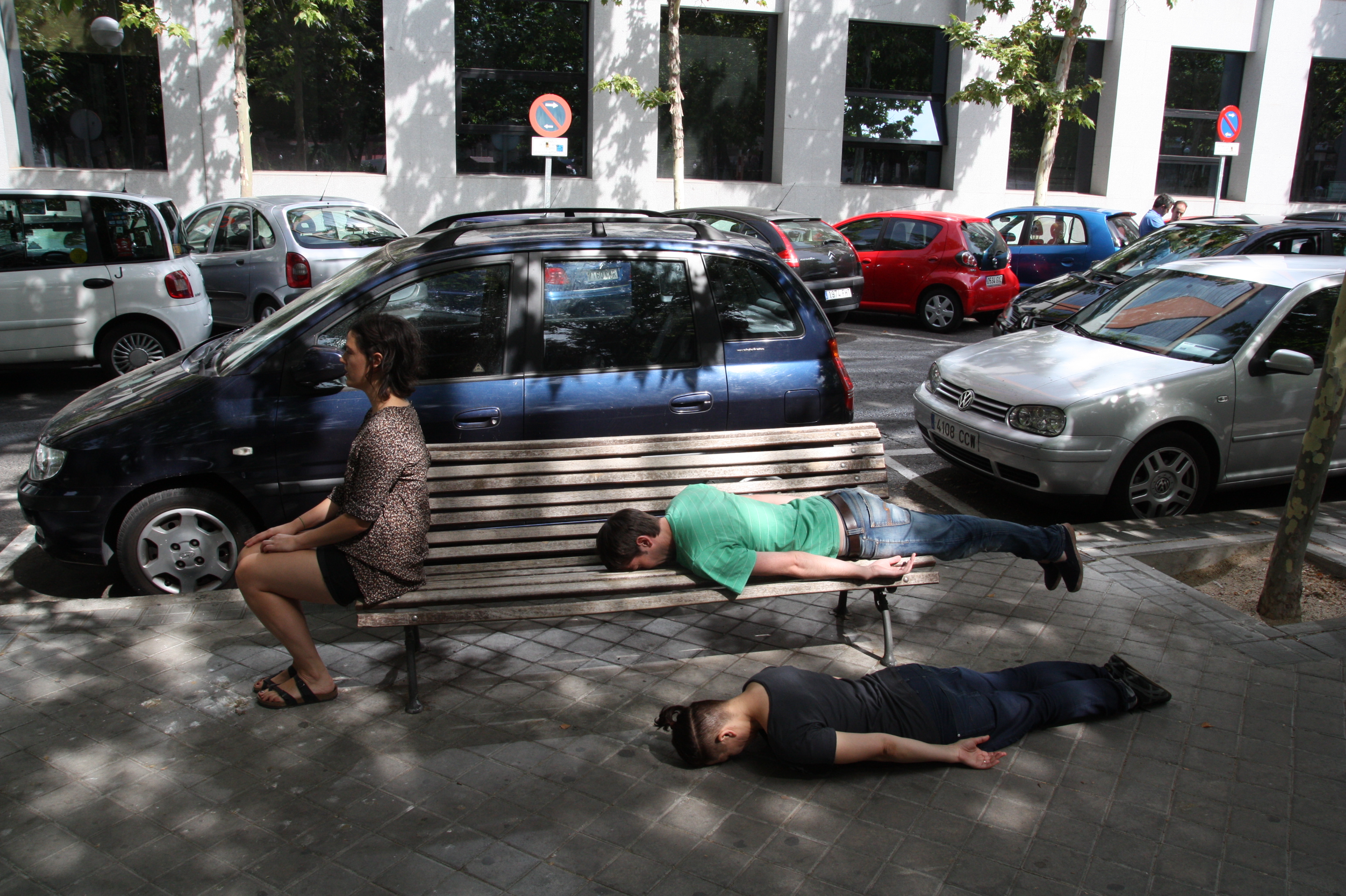
It seems that the current situation tries to tell, especially to young generations, that it is impossible to imagine an alternative reality. Far from being that way, many long-career and new collectives struggle to change that situation of imposed immobility. Hence, we want to hit the streets to better breathe; to look for new resources that the collectives and the public space may provide. Working from practice and in a team manner to share alternative tools adapted to our time, that it will help us shape the educational work with young people.
Workshop lead by: La Colonia, Victoria Gil-Delgado, Carlos Granados, Rafa Lamata, Pablo Martínez, Javier Rodrigo and Taller de Casquería.
It seems that the current situation tries to tell, especially to young generations, that it is impossible to imagine an alternative reality. Far from being that way, many long-career and new collectives struggle to change that situation of imposed immobility.
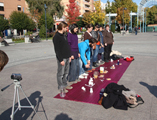
CA2M is well aware of the importance of building an educational community around the Museum in order to develop innovative educational practices related to art education and contemporary thinking, and one of the cornerstones of our educational project is therefore professional development for teachers.
Since January 2009, we have therefore been offering a variety of training programmes for teachers, such as tours and talks related to our exhibitions and, also, introductory course on current art. These initiatives will continue this year and will be joined by new ones held on our premises, such as the introductory course on the educational uses of contemporary art organised by the Leganes Territorial Centre of Innovation and Training.
Meanwhile, in June, a 20-hour workshop will be held in June for Secondary School art teachers and fine art students interested in art education.
Beusté / Vives. Cisnes y Ratas.
JAN 29- MAY 3. 2009
La colección
JAN 30- MAY 3. 2009
Leopold Kessler
JAN 29- MAY 3. 2009
imaginar_historiar
XVI Image Symposium
MAY 14– SEP 6. 2009
Periferia
MAY 14 – 27 SEP 2009
Light Yerars, Cristina Lucas
SEP 17 – NOV 29. 2009
Auto Dream and Materia
OCT 9. 2009 – JAN 10. 2010
Doblar a lo largo de la línea. Guy Ben Ner
DIC 16. 2009 – FEB 28. 2010
CA2M is well aware of the importance of building an educational community around the Museum in order to develop innovative educational practices related to art education and contemporary thinking, and one of the cornerstones of our educational project is therefore professional development for teachers.
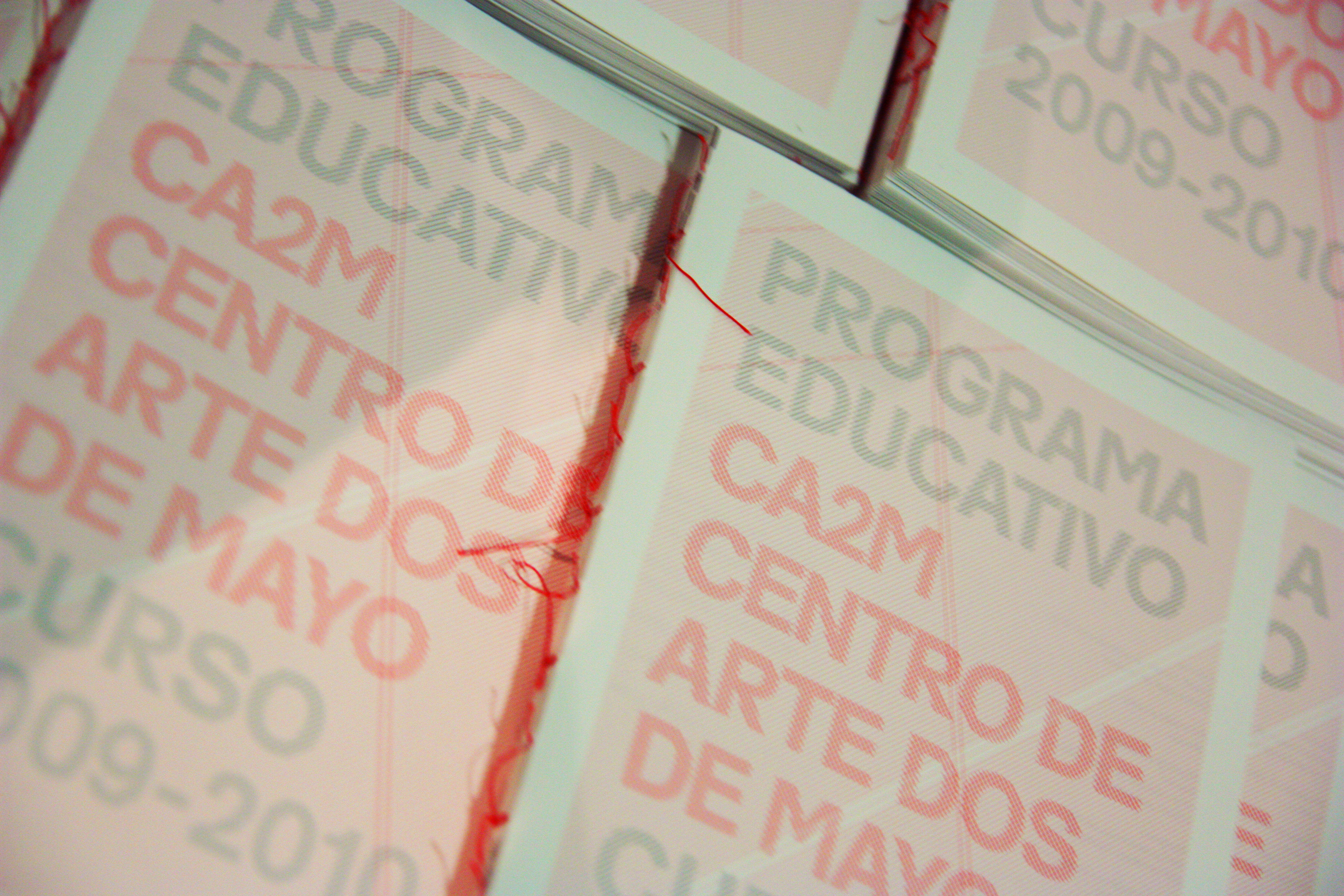
This workshop continues with CA2M teaching investigation line centered in new ways of knowledge buildings through the body and performance. This summer teacher´s training workshop with Los Torreznos, a duo of vital, cultural and conceptual exploration, who works within the contemporary art through performance and videocreation.
This workshop intends to explore the expressive territory of the art action, the performance, basically bounded to the body and to its presence. This exploration will be developed according to Los Torreznos criteria: insistence, energy, repetition, presence, humor, simplicity of resources, constrictions and challenge.
These elements will be applied to investigate and train through practice the expressive resources of the participants. Thus, it involves an experience to put back into play and develop the using possibilities of the presence itself as a reflection and communication tool with the world.
For the workshop it is not required any previous artistic or performance tranning
Los Torreznos
Los Torreznos, Jaime Vallaure (Asturias 1965) & Rafael Lamata (Valencia 1959), is a duo of conceptual exploration covering the social and politic issues, and the most deep-rooted tradition.
In the pass, Los Torreznos´ members have individually formed part of collectives of independent art creation (Zona de Acción Temporal, Circo interior Bruto, A UA CRAG, La Constructora, La Revista Caminada). They have also organized different programmes and events (Art Action Festivals, Series of Lectures, publications, international projects, etc.)
Los Torreznos was created in 2000. Among their creative activities, they have developed several art action works, video-installations and sound art works. They were also part of the Spanish Pavillion in the 2007 Venetia Biennial, moreover, they have worked in different international festivals (Shangai, Glasgow, Phoenix, Noriega, Russia, Germany, Quebec, etc.) an in national ones (Madrid, Barcelona, Sevilla, Valencia, Bilbao, Cordoba, etc.)
Rafael Lamata and Jaime Vallaure have developed several works of joint intervention, videos, installations, actions ((ABC de la performance, Cuentos para la Cárcel de Carabanchel, La lógica del continente, 8 pasos para la destrucción del sistema capitalista, etc.)
This workshop continues with CA2M teaching investigation line centered in new ways of knowledge buildings through the body and performance.
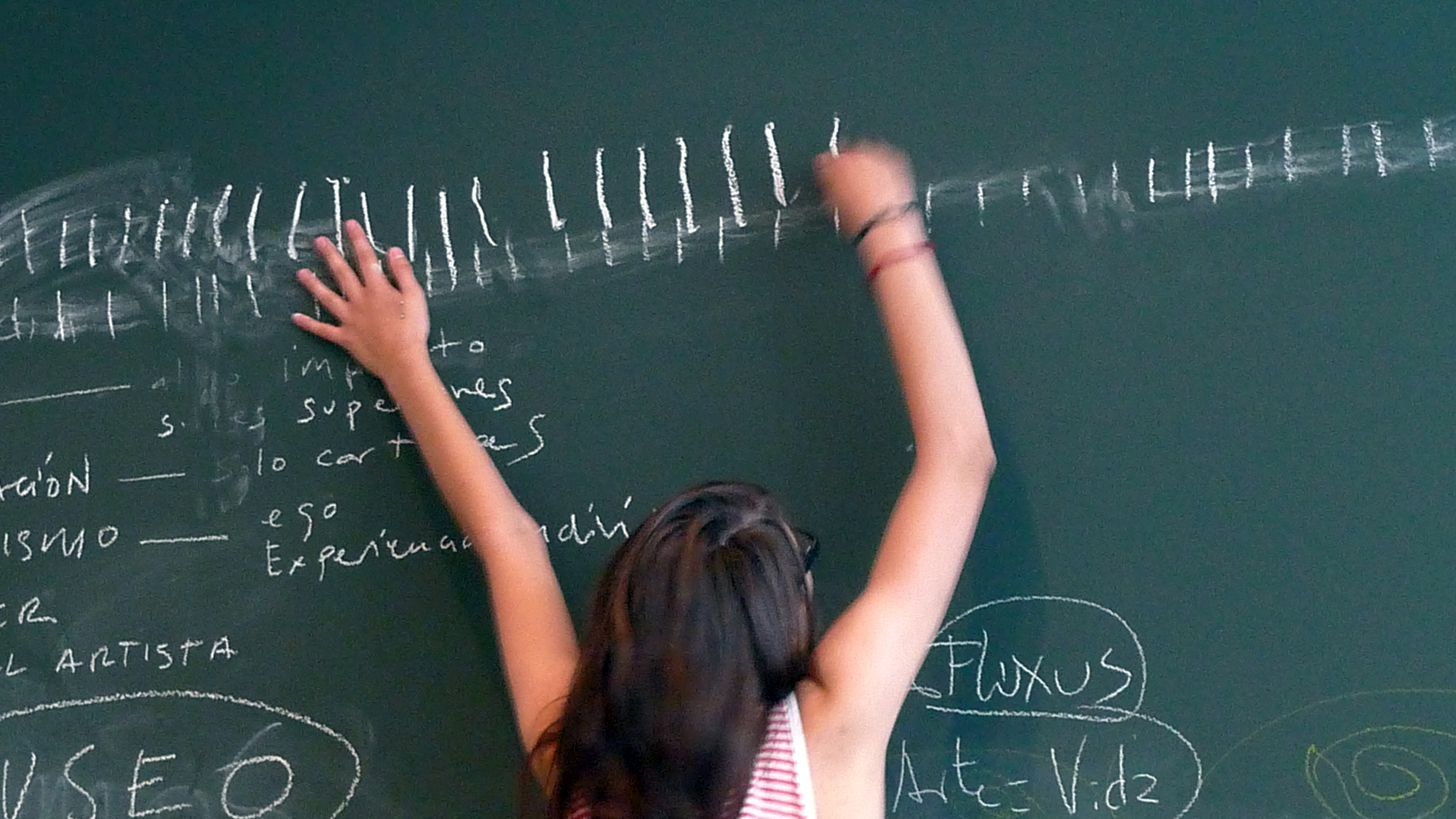
Tania Bruguera is a multidisciplinary artist who works in the fields of performance, contextual, installation and video art. She has done extensive research on art and its political implications for everyday life. In her works, the audience is urged to play the role of citizens. In addition to her artistic practice, Bruguera is known for her philosophical reflections on education and knowledge building and how they are related to art. She is the founder of Arte de Conducta, the first programme for performance and political art studies.
By offering this 20-hour workshop, the CA2M continues to pursue a line of work associated with education and the potential educational applications of working with the body and the language of performance. Under the guidance of Tania Bruguera, we will reflect on education and art as political practices expressed through and from the body and the performative act.
Tania Bruguera is a multidisciplinary artist who works in the fields of performance, contextual, installation and video art. She has done extensive research on art and its political implications for everyday life. In her works, the audience is urged to play the role of citizens.
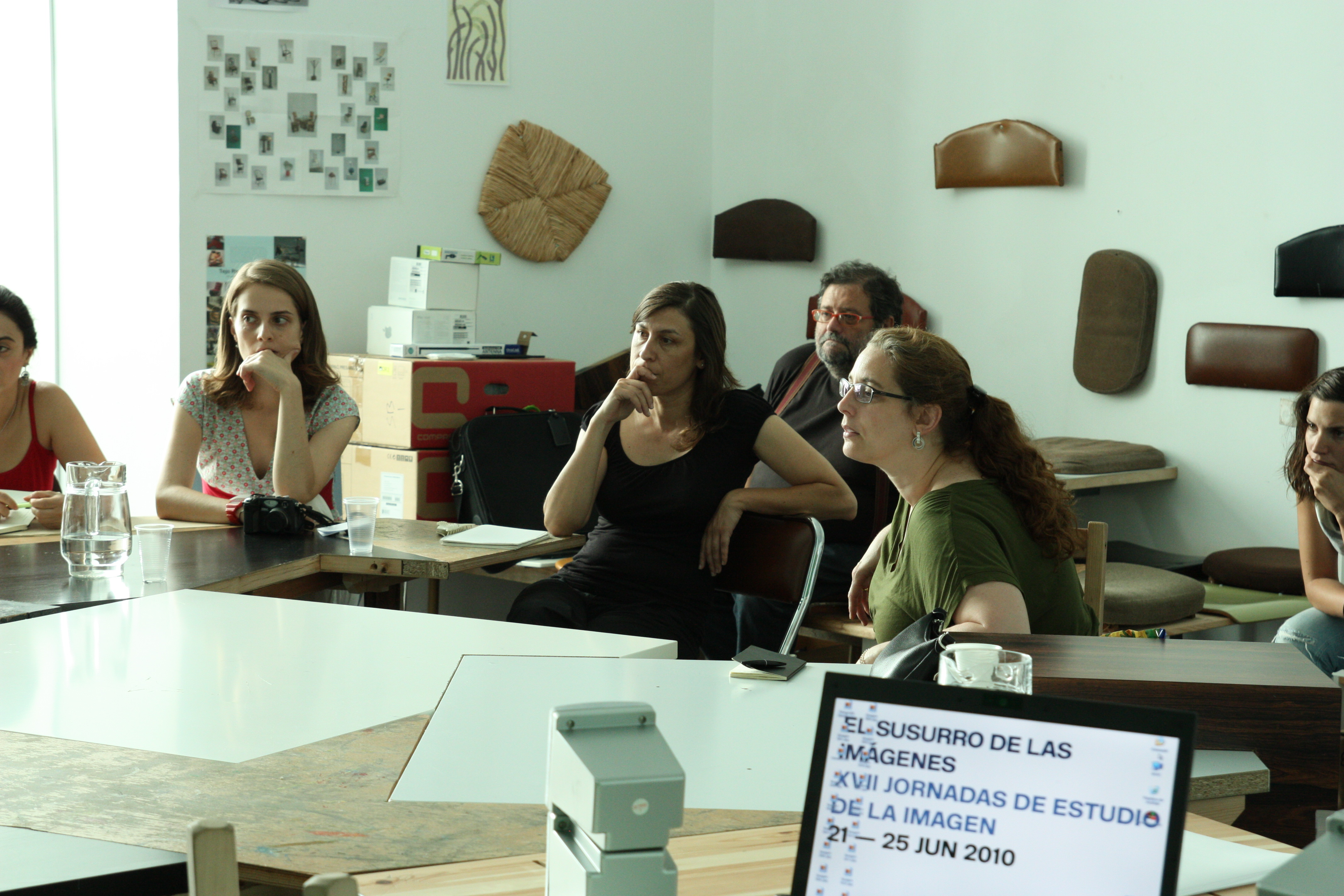
During 2010, CA2M offers visits and colloquiums about the exhibitions that CA2M helds. After touring the exhibition, we will engage a dialogue in the galleries where CA2M educators will propose different methodological strategies to work the exhibitions with the pupils. CA2M will give a dossier to the teachers with information and documentation concerning the exhibition to familiarize with contemporary art, its terms and meanings.
JAN 12. 18:30 H. 2010.
Doblar a lo largo de la línea. Guy Ben-Ner.
FEB 10. 18:30 H. 2010.
Sonic Youth etc. : Sensational Fix
APR 20. 18:30 H. 2010.
Visita-coloquio sobre la exposición Colección II
JUL 5 – 9. 10:00 - 14:00 H. 2010.
Performance Workshop with Tania Bruguera
6 OCT. 18:30 — 20:00 H. 2010.
Tour & Talks on the exhibition "Antes que todo"
During 2010, CA2M offers visits and colloquiums about the exhibitions that CA2M helds. After touring the exhibition, we will engage a dialogue in the galleries where CA2M educators will propose different methodological strategies to work the exhibitions with the pupils. CA2M will give a dossier to the teachers with information and documentation concerning the exhibition to familiarize with contemporary art, its terms and meanings.
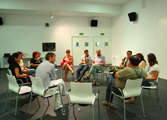
During this 20-hour workshop, CA2M keeps on its line of work focusing on education and reflection regarding the educative uses of bodywork and performance language. Guided by Norberto Llopis, we will reflect on education and art as political practices, intending to trigger new impulses and searches for new forms of imagination not under control yet. The practice will revolve around some concepts: the concept of performative act, the concept of affection and the power one.
“Performative” act
In practamatic, the philosopher J.L. Austin explains that language is not pure, a mere instrument of symbolic communication used to transfer meanings, therefore, language can be also studied at a “performative” level, being usually an example of act of promising. Promising, not in the sense of a communication of a subjective intension of performing what it is promised, promising is an act in itself, independent even from what it was promised to finally be performed.
This practice invites us to focus on the performative aspect of our proposals. What are we doing?, What does what we are doing?, of course, I would not want falling into dogmatism, since meanings also “perform”.
Affect and power
“By affect I understand affections of the body by which the body's power of acting is increased or diminished, aided or restrained, and at the same time, the ideas of these affections…”
Barush Spinoza, Ethics, Demonstrated in Geometrical Order
Much has been said about affection, but it has not always been considered, as the aforesaid, the power or the possibility that this affect aids or restrains. Putting aside the dimension of power (in a broad sense, as restrained power as enabling, discrediting, impellenting), to some extent, the action of work is denied, limiting affections towards contemplative windows where the action goes no further than their contemplative frame.
What does it give? What does it take? What can it get? What does it want? What does it do? No place for innocence, the intensity of affection doesn´t give a certificate of innocence, like it would be like saying “this affection does not affect”. Willing to generate a discussion environment during this workshop, do not take for granted or dogmatize the concepts we start from.
Instruments
By applying different exercises and instruments to analyze and to approach to our practice by means of affection, action and power, as well as to elude mere discursive or narrative dramas: use of maps as a means to apply strategies to affect in a way to restrain other ways; use of objects as a means of materializing or objecting affects, the affects as that simulation that objects perform: and the use or creation of dictionaries that help us to understand the extension of the affects to work with.
During this 20-hour workshop, CA2M keeps on its line of work focusing on education and reflection regarding the educative uses of bodywork and performance language.
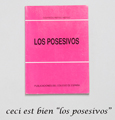
It is a Wave, it transports perturbations in space, it will go far, 13 nomadic horsepower, new battery, it has always slept in a garage, tuned to the max, you can choose whether to pass the MOT or head for the hills, any intermediate options are also negotiable, suffice to hear it hum, it just needs a little servicing, its only fault is that it is always going off on a tangent. Ideal for excursions and short spins, getting lost among the crowd and trading cards. It includes an incomplete toolbox and drifter’s maps. Come and see it, no strings attached.
Nilo Gallego is a musician whose performances use sound as their starting point. His work, which always has a playful component, seeks the participation of the audience and interaction with the context and the everyday. He plays the drums, percussion and electronic music.
Es una Onda, transporta perturbaciones en el espacio, llegará lejos, 13 caballos nómadas de potencia, batería nueva, ha dormido siempre en garaje, tuneada a más no poder, puedes elegir pasar la ITV o tirarte al monte, también negociable cualquier posibilidad intermedia
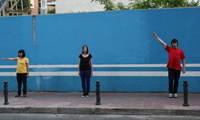
This new education project consists of thinking about the patios in education centers and possible interventions in them. These leisure spaces can provide the perfect context from which to reflect on the educational experience and the problems inherent to their architecture at present. Over the course of these months, and through a number of sessions, we will look at the needs of various centers, the invisible powers that govern these spaces and the possibility and importance of transforming them.
The artist, Bárbara Fluxá has been developing a multidisciplinary art project that revolves around an analysis of the construction of the territory as a cultural «landscape». This is why the places in which she puts together her works take on such importance as the genesis and very object of both the artistic and theoretical analysis, at the same time.
VISIT AND TALK ON PER/ FORM. HOW TO DO THINGS WITH (OUT) WORDS
Apart from visiting the Per/form exhibition with the teachers, we will also reflect on the concept of performativity in the museum and its ability to generate knowledge. On this occasion, together with the teachers we will analyze the dynamics of performance!, a joint activity with secondary school groups on this exhibition.
This new education project consists of thinking about the patios in education centers and possible interventions in them. These leisure spaces can provide the perfect context from which to reflect on the educational experience and the problems inherent to their architecture at present.
